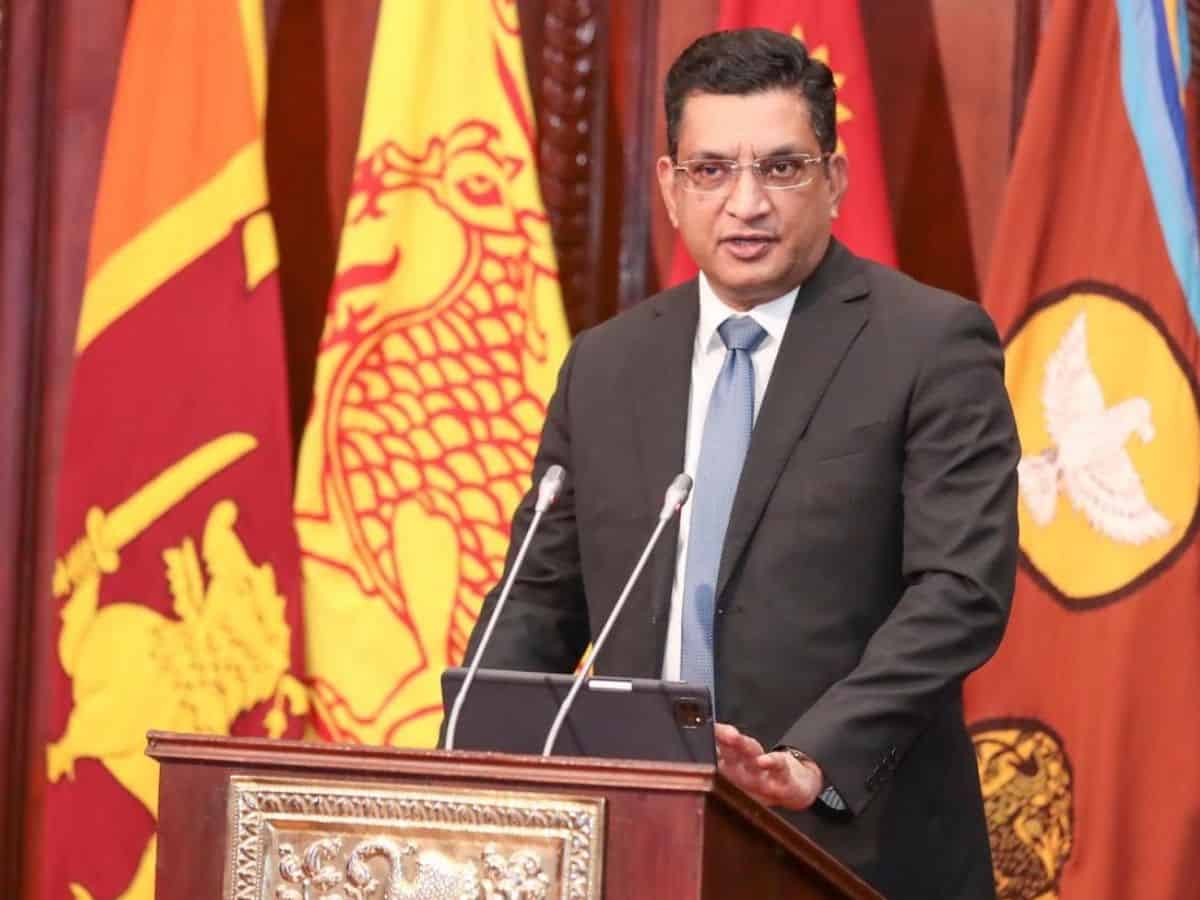
Colombo: Highlighting achievements of the government led by President Ranil Wickremesinghe, Sri Lanka’s Foreign Minister Ali Sabry on Wednesday said that “dedicated efforts” over the last two-and-a-half years have successfully stabilised the country.
“Sri Lanka is the only nation that has successfully navigated an economic crisis in such a short period. Our swift recovery from the economic crisis has set a global example. Currently, countries such as Pakistan, the Maldives, and Bangladesh are seeking our advice on economic revitalization. The leadership of President Ranil Wickremesinghe in stabilizing the country has been recognised internationally,” said Sabry during a news conference organised on ‘Two Years of Progress and Advancement’ at the Presidential Media Centre in Colombo on Wednesday.
The Minister further stated that the Ministry of Foreign Affairs was assigned a crucial role in 2022 due to the country’s challenging circumstances – of rebuilding strained foreign relations, regaining the trust of the international community, and leveraging international relations to boost the country’s economy.
“Our international reputation now reflects the positive results achieved domestically. Our swift recovery from the economic crisis has set a global example. Securing agreements with 17 countries for debt restructuring through international relations is a significant achievement for us. We have completed the debt restructuring process while upholding our foreign policy, local identity, and sovereignty,” said the Lankan Foreign Minister.
He mentioned that among the five countries — Lebanon, Venezuela, Argentina, Zimbabwe and Greece — that faced similar economic crisis, only Greece managed to recover after 12 long years.
Slamming “some individuals” who are “misleading” the public by advocating for renegotiations with the International Monetary Fund (IMF) for “narrow political objectives”, Sabry said that the entire process of renegotiation is challenging and often unsuccessful.
The Minister warned that resuming negotiations with the IMF could jeopardize the next tranche due in December, as well as subsequent disbursements from the World Bank (WB) and the Asian Development Bank (ADB).
“As a result, between December 2024 and January 2025, the country could lose between USD 1.2 billion to 1.3 billion, which could lead to further instability,” said Sabry.
The island nation is getting ready for the September 21 presidential election, the first after the country’s worst-ever economic crisis.
A total of 39 candidates will be contesting the election with incumbent President Ranil Wickremesinghe, opposition leader Sajith Premadasa and Marxist leader Anura Dissanayake considered as the front-runners.
Sri Lanka Podujana Peramuna (SLPP) Presidential candidate Namal Rajapaksa has also promised a “new era” of economic progress.
Out of the total population of around 22 million, 17.1 Lankans are eligible to vote in the upcoming election. This includes 1.2 million new voters.
In the 2019 election, Gotabaya Rajapaksa, the younger brother of former President Mahinda Rajapaksa, was elected as the President after recording a landslide victory.
However, a severe economic crisis after the Covid pandemic and several shortsighted decisions led to a major economic crisis in the country with severe shortages of basic essentials like food, fuel, medicine and cooking gas.
Widespread protests and violence forced Gotabaya to flee the country in July 2022 with several other members in the Rajapaksas family also going into hiding.
As he left, Gotabaya invited Wickremesinghe to take over the country with the support of nearly 60 per cent SLPP majority in the parliament.
Having gradually controlled the economic crisis, Wickremesinghe asked SLPP to support him in the upcoming Presidential Election but the Rajapaksas accused the President of dividing their party and denied any support.
Later, Namal Rajapaksa, the eldest son of former President and Prime Minister Mahinda Rajapaksa, also entered Sri Lanka’s Presidential election race.
